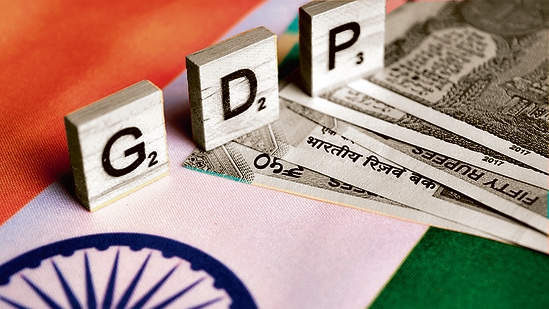Reforming India's tax culture for better tax to GDP ratio
This article is authored by Garvita Y, research associate, Think Change Forum, New Delhi.
For India to achieve its economic goal of becoming a developed country by 2047, it must mobilise massive resources to build the nation. This requires increasing tax revenue without overburdening existing taxpayers. Direct taxes play a crucial role in capitalising the exchequer while reducing the burden of indirect taxes. Lower indirect taxes accelerate small businesses and increase consumption, creating a virtuous economic cycle and thereby boosting Gross Domestic Product (GDP). However, India's approach has been to levy high indirect taxes through multiple Goods and Services Tax slabs while offering significant exemptions to individual taxpayers. This strategy, while well-intentioned, has unintended behavioural consequences, with a flattening effect on tax growth, that warrant closer examination.

The field of behavioral economics has shed light on the intricate relationship between human behaviour and tax compliance. However, most research in this area is western-centric, leaving a significant gap in our understanding of how these concepts apply to a diverse country like India, with its unique economic sub-groups and distinct culture. As India strives for economic growth and development, there is an urgent need to examine its tax policies through a behavioural economic lens, particularly focusing on tax exemption policies.
The current tax exemption policy for low-income earners, aimed at reducing the financial burden on the economically disadvantaged, has created a systemic issue that encourages tax avoidance and weakens the culture of tax compliance. The Income Tax Act of 1961 mandates income tax payments for individuals whose annual income exceeds the minimum exemption limit. While this progressive tax structure, where higher income earners pay higher taxes, aims to promote economic growth, reduce inequality, and ensure adequate government revenue for public services, the proliferation of tax preferences has led to a narrowing of the tax base and a reduction in compliance.
India's tax-to-GDP ratio at 16.6% has traditionally been lower than other comparable developing economies by an average of 5.4%. Among the many reasons for this sluggish ratio, the predominant cause is a low level of compliance. Data released by the Central Board of Direct Taxes (2023) suggests that the current compliance rate is at 9.21%, implying that of nearly 880 million individuals with taxpayer status, only 82 million filed taxes in 2022.
Research in behavioural economics suggests that tax exemptions can reduce taxpayers' intrinsic motivation to comply. If the tax system seems too lenient, it might lower overall compliance. Frey and Jegen (2001) discuss the crowding-out effect of taxpayers that arises from external interventions, like tax exemptions, as they undermine intrinsic motivation, causing a decrease in the motivation to follow tax laws.
The large literature on taxation in behavioural economics explains how tax compliance is closely linked to civic responsibility. When individuals are required to pay taxes, they develop a sense of ownership and responsibility towards public goods and services. Exempting a large portion of the population signals that these individuals do not need to contribute to the collective welfare, weakening the overall sense of civic duty. Moreover, habits and routines play a crucial role in shaping behavior. When individuals are legally exempted from paying taxes, they are less likely to develop the habit of reporting their income and understanding their fiscal responsibilities.
According to the latest Government data, out of a total of 622 lakh income tax returns filed, 429 lakhs paid no tax, leaving 193 lakh individuals to pay tax as of 2023. Only 2.2% of the total eligible Indian adult population (approx 88 crores) are income taxpayers. To put things into perspective, similar statistics for certain other developed countries are – France 78.3%, United States 50.1%, Germany 61.3%, United Kingdom 59.7%. The current policy also incentivises under-reporting of income and tax evasion, particularly in India's substantial informal economy.
To address these issues, India should consider implementing universal tax reporting and minimal tax contributions. This approach could foster a culture of accountability, transparency, and civic engagement. By mandating universal tax reporting, even at minimal levels, the government can gradually bring more economic activities into the formal sector.
Developmental psychology emphasises how early experiences significantly impact future behaviour. If young adults entering the workforce are required to report their income and pay a nominal tax, they are more likely to continue this practice as their earnings grow. This early habit formation can lead to higher compliance rates in the future, reducing enforcement and compliance costs for the government.
Encouraging even minimal tax contributions can cultivate an accountability culture in India. A nominal tax payment, such as ₹10 per year, can instill a sense of participation and responsibility in every citizen. This approach aligns with the concept of "nudging" in behavioral economics, where small changes in the environment can lead to significant behavioural shifts.
Ultimately, the true mark of a developed country is a culture of civic responsibility and economic participation. As Anirudh Tagat from the University of Warwick notes in his research on tax compliance, "The decision to comply with tax regimes and truthfully report one's income is closely tied to whether there is an existing 'culture' of such behaviour."
By reforming its tax exemption policy and embracing behavioural economic principles, India can create a more transparent, accountable, and engaged society. This approach would lay the foundation for sustainable development and prosperity, bringing the nation closer to its goal of becoming a truly developed country.
This article is authored by Garvita Y, research associate, Think Change Forum, New Delhi.





